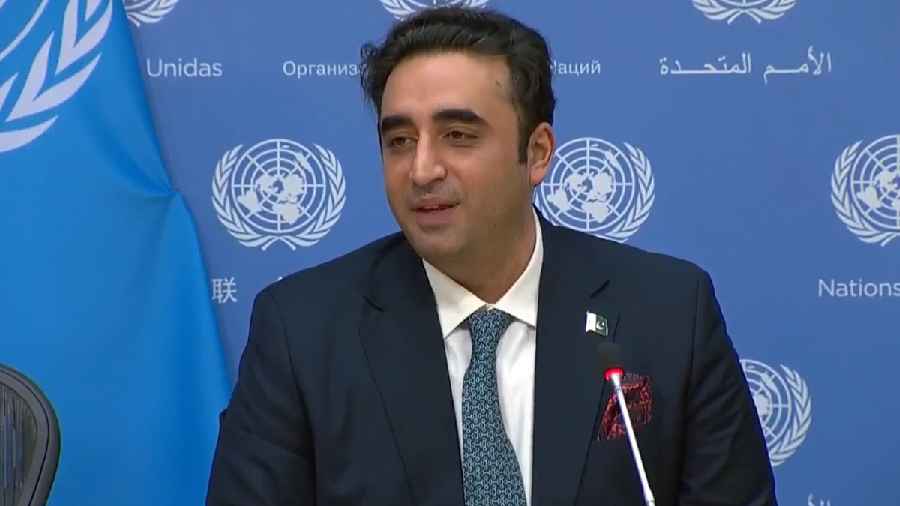Pakistan on Saturday rejected India's criticism of Foreign Minister Bilawal Bhutto-Zardari's "uncivilised" outburst against Prime Minister Narendra Modi, alleging that it showed New Delhi's "growing frustration".
The Pakistani minister resorted to a personal attack against Prime Minister Modi and slammed the RSS after External Affairs Minister S Jaishankar described the neighbouring country as the "epicentre of terrorism" during his visit to New York to attend UN events.
Meanwhile, the Bharatiya Janata Party (BJP) staged protests in various Indian cities chanting slogans against Bhutto, burning his posters and effigies and demanding an apology from Pakistan.
On Friday, External Affairs Ministry Spokesperson Arindam Bagchi in New Delhi said that Bilawal's "uncivilised outburst" seemed to be a result of Pakistan's increasing inability to use terrorists and their "proxies".
In a strong condemnation, Bagchi said Bilawal's "frustration" would be better directed towards the masterminds of terrorist enterprises in his own country that has made terrorism a part of its "state policy".
"Pakistan is a country that glorifies Osama bin Laden as a martyr, and shelters terrorists like (Zakiur Rehman) Lakhvi, Hafiz Saeed, Masood Azhar, Sajid Mir and Dawood Ibrahim," he said. "No other country can boast of having 126 UN-designated terrorists and 27 UN-designated terrorist entities."
Bagchi also said that the minister's remarks "are a new low, even for Pakistan."
On Saturday, the Foreign Office (FO) here issued a statement in response to the media queries regarding the External Affairs Ministry's comments on Bilawal.
The MEA statement is "a reflection of India's growing frustration over its failure in maligning and isolating Pakistan," FO alleged.
The FO claimed that India is "desperately using international platforms to advance its agenda to defame and target Pakistan" following Islamabad's exit from the FATF grey list in October and international recognition of its counterterrorism efforts.
Pakistan was taken off the grey list of the Paris-based Financial Action Task Force (FATF), the global watchdog on terror financing and money laundering, four years after it was put in the infamous categorisation.
It also alleged that India was following a "policy of pettiness towards its neighbours".
"Intimidation and demonisation of religious minorities receives official patronage in states across India," FO alleged, adding that New Delhi was "peddling a fictitious narrative of victimhood."
Relations between India and Pakistan have often been strained over the Kashmir issue and cross-border terrorism emanating from Pakistan.
However, the ties between the two countries nosedived after India abrogated Article 370 of the Constitution, revoking the special status of Jammu and Kashmir and bifurcating the State into two Union Territories on August 5, 2019.











